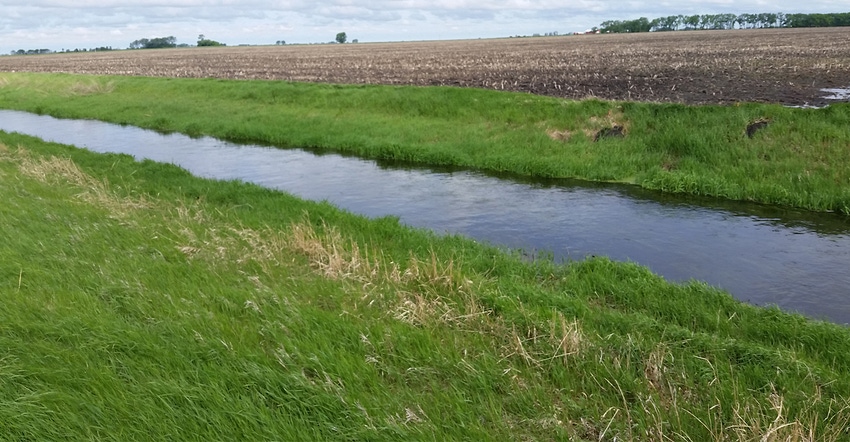
Fifteen Minnesota agricultural organizations last week sent a joint letter to Gov. Mark Dayton and legislative leaders, requesting the passage of legislation this session that will give farmers who comply with the state’s buffer law a $50-per-acre property tax credit for farm acres that are required to be removed from production.
The letter calls for fairness and equity in the buffer law, which currently penalizes farmers by continuing to tax buffer acres at valuations that assume these acres are still producing crops and income.
“While Minnesota farmers have been doing their part to comply, farmers are highly frustrated with the lack of action to address the most important piece of unfinished business in the 2015 buffer law — the lack of compensation for this taking of productive farmland,” the letter stated. “Farmers and most Minnesotans understand the basic concept that if government takes private property for a public purpose, government MUST compensate the private property owner. In addition, if there is a significant reduction in the value of a home or business, by law, the assessed value must be lowered to its new/lower market value, which results in lower property taxes on that property.”
The letter noted that not only does the buffer law require farmers to install buffers at their expense, but it also further penalizes farmers by continuing to tax buffer acres at valuations that assume these acres are still producing crops and income.
Request to pass bipartisan legislation
The state’s ag organizations asked Dayton to pass bipartisan legislation ��— HF 4395/SF 3960 — that provides farmers with a $50-per-acre tax credit for farm acres that are required to be removed from production and converted into buffers. The legislation includes a provision to use Clean Water Legacy funds for the tax credit.
“The majority of the [proposed] bill has widespread support,” says Kirby Hettver, Minnesota Corn Growers Association president. MCGA provided leadership in organizing support for the joint letter. “However, the funding source is causing angst among some,” he adds.
Hettver says it makes sense that funding for the buffer law comes from the Clean Water Legacy funds. The goals of both run parallel.
Dayton responded to the ag groups’ letter and iterated that he supports the use of General Fund surplus to pay for the credit. Dayton noted that he proposed a tax credit in his 2017 tax bill, but lawmakers did not include it in their tax bill, which he signed.
“I will support any funding source, as long as it is constitutional,” Dayton said in a May 10 letter addressed to ag leaders.
The governor also said he agrees that the Legislature should pass the property tax credit this year.
“There is no excuse for not doing so,” he wrote in the letter. “I look forward to further conversation, once the House and Senate have worked through their final version together.”
Most farms comply with buffer law
Since the buffer law went into effect, the Minnesota Board of Water and Soil Resources said that 98% of the farms affected by it are in compliance with it.
The joint ag letter was signed by MCGA, Minnesota Farm Bureau, Minnesota AgriGrowth Council, Chicken and Egg Association of Minnesota, Cooperative Network, Minnesota Barley Growers, Minnesota Pork Producers, Minnesota State Cattlemen’s Association, Northern Plains Potato Growers, Minnesota Association of Wheat Growers, Minnesota Milk Producers, Minnesota Soybean Growers, Minnesota Turkey Growers, Red River Valley Sugarbeet Growers and Southern Minnesota Beet Sugar Cooperative.
The ag letter has generated a lot of attention, Hettver adds, and continues to be discussed in various committees.
The ag letter concludes: “Let us be absolutely clear — anything other than final passage of the buffer property tax credit this year with your signature will be considered a failure, and this WILL be a major issue in the elections this fall. Farmers are doing their part to comply — it’s time for the state to come through. The time for excuses and political finger-pointing has expired. Farmers demand and expect action. This year.”
About the Author(s)
You May Also Like






